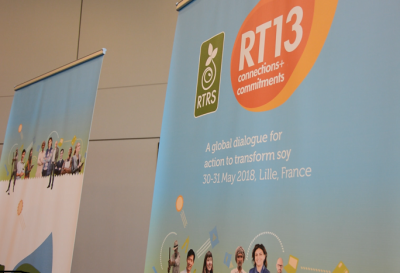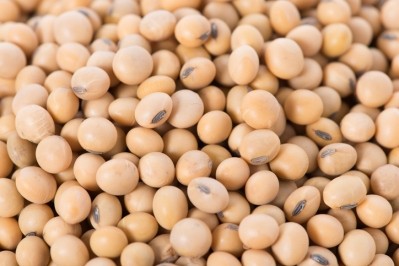FEFAC moves to clarify any ambiguity around soy sourcing guidelines

The move, said EU feed manufacturers’ federation (FEFAC) president, Ruud Tijssens, was triggered by the feedback provided by stakeholders during the public consultation period that followed the release of the draft guidelines.
He said the trade group acknowledges the time and effort industry players took to comment on the draft principles, with much of the feedback constructive. “We will be incorporating ISO standard based criteria into the guidelines, for instance, following on from some of the reaction we received,” Tijssens told us.
Addressing ambiguity
The guidelines focus on six basic principles: legal compliance, environmental responsibility, good agricultural practices, protection of community relations, respect for land rights and responsible working conditions but it was clear from several comments, said the FEFAC president, that some organizations did not fully understand their aim.
“In fact, a few groups thought the guidelines were a standard rather than a set of requirements by which to gauge responsible soy sourcing schemes,” said Tijssens. “So, in an initial response to the public consultation and in order to eliminate any ambiguity around the recommendations, FEFAC has addressed five areas that generated the most discussion from the purpose of the guidelines to deforestation to essential and desired criteria.”
FEFAC, in that response, said it is outside its scope and mandate to determine which soy products companies have to buy or for it to promote any particular responsible soy standard or program.
However, the trade body said it can facilitate its member associations with information and give recommendations to their respective member companies regarding the sourcing of responsible soy in accordance with the new sourcing guidelines.
FEFAC said the guidelines describe a number of sustainability items that, according to the European feed industry, has to be included in soy standards or programs in order to meet a credible baseline level.
‘The sourcing guidelines are inspired by RTRS, ProTerra, ISCC and other available responsible soy programs, but do not cover all items of these programs.
The guidelines include important social and environmental items and focus on criteria which are practically applicable by farmers. The goal is to define a baseline in the market and raise that baseline in time — continuous improvement based on volume-bound commitment — using standards like RTRS, Proterra, ISCC as a reference,' noted the publication.
Deforestation
In terms of deforestation, a number of organizations also expressed concern about FEFAC’s focus on legality for soy expansion, and they called for the trade group to include a universal cut-off date in the recommendations after which no conversion of land into soy production land can take place.
However, Tijssens said FEFAC has concluded: “In this phase, the most valuable contribution the guidelines can make towards ending illegal deforestation is to ensure legal compliance with governmental regulation - an important first step towards forest protection."
And, according to FEFAC, producers should comply with relevant legislation for land expansion and are not allowed to expand production in protected areas, conservation areas and areas otherwise protected by law.
Private and public sector effort
In April this year, Sibyl Anwander, at the time the executive director of non-profit group, the ProTerra Foundation, noted one weak point in the draft guidelines was the fact they did not endorse the zero net deforestation target – a firm objective for ProTerra and the Round Table on Responsible Soy (RTRS).
“We support the principle of zero net deforestation as demanding zero deforestation per definition is an unrealistic target but zero net requires synergetic efforts from both the private and public sectors – it needs the involvement of national authorities.
As it stands, our guidelines are in line with the revised Brazilian Forest Code, which together with the federal monitoring of farms under the rural environmental registration (CAR), we see as a real breakthrough in terms of enabling responsible soy production,” said Tijssens in response to Anwander.
He said FEFAC has been also collaborating with the International Trade Center (ITC) to develop a filter system – a benchmarking tool that responsible soy standards can show compliance with the FEFAC guidelines.
“This is nearly ready and will be live one or two months following the release of the final sourcing guidelines, which are imminent,” said Tijssens.
FEFAC, in the interest of transparency, is also due to publish all the comments it received as part of the public consultation phase of the guidelines.
The trade body's answer to the questions raised on the draft guidelines can be read here.










